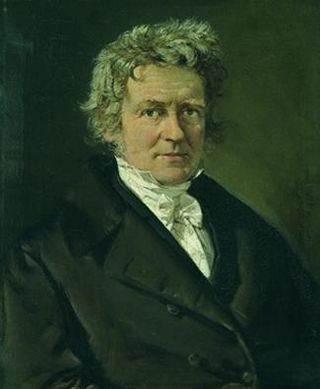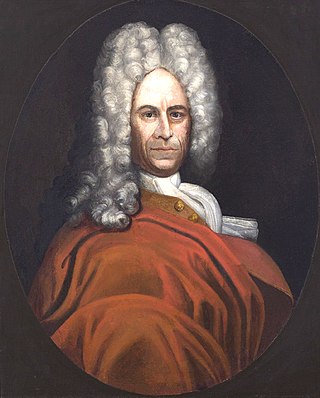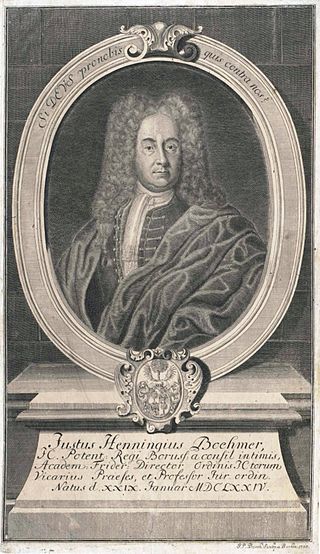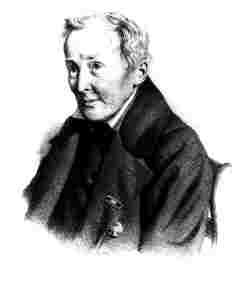
Protogaea [1] is a work by Gottfried Leibniz on geology and natural history. Unpublished in his lifetime, but made known by Johann Georg von Eckhart in 1719, [2] it was conceived as a preface to his incomplete history of the House of Brunswick. [3]

Protogaea [1] is a work by Gottfried Leibniz on geology and natural history. Unpublished in his lifetime, but made known by Johann Georg von Eckhart in 1719, [2] it was conceived as a preface to his incomplete history of the House of Brunswick. [3]
Protogaea is a history of the Earth written in conjectural terms; it was composed by Leibniz in the period from 1691 to 1693. [4] A summary in Latin was published in 1693 in the Leipzig Acta Eruditorum . [5] The text was first published in full in 1749, shortly after Benoît de Maillet's more far-reaching ideas on the origin of the Earth, circulated in manuscript, had been printed. [6]
Protogaea built on, and criticized, the natural philosophy of René Descartes, as expressed in his Principia Philosophiae . [7] Leibniz in the work adopted the Cartesian theory of the Earth as a sun crusted over with sunspots. [3] He relied on the authority of Agostino Scilla writing about fossils to discredit the speculations of Athanasius Kircher and Johann Joachim Becher; [8] he had met Scilla in Rome a few years earlier. [9] He took up suggestions of Nicolaus Steno that argued for the forms of fossils being prior to their inclusion in rocks, for stratification, and for the gradual solidification of the Earth. [10]

Friedrich Wilhelm Bessel was a German astronomer, mathematician, physicist, and geodesist. He was the first astronomer who determined reliable values for the distance from the sun to another star by the method of parallax. Certain important mathematical functions were named Bessel functions after Bessel's death, though they had originally been discovered by Daniel Bernoulli before being generalised by Bessel.

Gottfried Wilhelm Leibniz was a German polymath active as a mathematician, philosopher, scientist and diplomat who invented calculus in addition to many other branches of mathematics and statistics. Leibniz has been called the "last universal genius" due to his knowledge and skills in different fields and because such people became less common during the Industrial Revolution and spread of specialized labor after his lifetime. He is a prominent figure in both the history of philosophy and the history of mathematics. He wrote works on philosophy, theology, ethics, politics, law, history, philology, games, music, and other studies. Leibniz also made major contributions to physics and technology, and anticipated notions that surfaced much later in probability theory, biology, medicine, geology, psychology, linguistics and computer science. In addition, he contributed to the field of library science by devising a cataloguing system whilst working at the Herzog August Library in Wolfenbüttel, Germany, that would have served as a guide for many of Europe's largest libraries. Leibniz's contributions to a wide range of subjects were scattered in various learned journals, in tens of thousands of letters and in unpublished manuscripts. He wrote in several languages, primarily in Latin, French and German.

Hermann Ludwig Ferdinand von Helmholtz was a German physicist and physician who made significant contributions in several scientific fields, particularly hydrodynamic stability. The Helmholtz Association, the largest German association of research institutions, is named in his honour.

Christian Wolff was a German philosopher. Wolff is characterized as one of the most eminent German philosophers between Leibniz and Kant. His life work spanned almost every scholarly subject of his time, displayed and unfolded according to his demonstrative-deductive, mathematical method, which some deem the peak of Enlightenment rationality in Germany.

Johann Gottfried von Herder was a German philosopher, theologian, poet, and literary critic. He is associated with the Enlightenment, Sturm und Drang, and Weimar Classicism. He was a Romantic philosopher and poet who argued that true German culture was to be discovered among the common people. He also stated that it was through folk songs, folk poetry, and folk dances that the true spirit of the nation was popularized. He is credited with establishing or advancing a number of important disciplines: hermeneutics, linguistics, anthropology, and "a secular philosophy of history."
Gottfried Achenwall was a German philosopher, historian, economist, jurist and statistician. He is counted among the inventors of statistics.

The Prince-Bishopric of Würzburg was an ecclesiastical principality of the Holy Roman Empire located in Lower Franconia, west of the Prince-Bishopric of Bamberg. Würzburg had been a diocese since 743. As established by the Concordat of 1448, bishops in Germany were chosen by the canons of the cathedral chapter and their election was later confirmed by the pope. Following a common practice in Germany, the prince-bishops of Würzburg were frequently elected to other ecclesiastical principalities as well. The last few prince-bishops resided at the Würzburg Residence, which is one of the grandest Baroque palaces in Europe.

Altdorf bei Nürnberg is a town in south-eastern Germany. It is situated 25 km east of Nuremberg, in the district Nürnberger Land. Its name literally means “Altdorf near Nuremberg”, to distinguish it from other Altdorfs.

The Gottfried Wilhelm Leibniz Prize, or Leibniz Prize, is awarded by the German Research Foundation to "exceptional scientists and academics for their outstanding achievements in the field of research". Since 1986, up to ten prizes have been awarded annually to individuals or research groups working at a research institution in Germany or at a German research institution abroad. It is considered the most important research award in Germany.

Johann Georg von Eckhart was a German historian and linguist.

The German Academy of Sciences at Berlin, German: Deutsche Akademie der Wissenschaften zu Berlin (DAW), in 1972 renamed the Academy of Sciences of the GDR, was the most eminent research institution of East Germany.
Maria Margaretha Kirch was a German astronomer. She was one of the first famous astronomers of her period due to her writing on the conjunction of the sun with Saturn, Venus, and Jupiter in 1709 and 1712 respectively.

Science and technology in Germany has a long and illustrious history, and research and development efforts form an integral part of the country's economy. Germany has been the home of some of the most prominent researchers in various scientific disciplines, notably physics, mathematics, chemistry and engineering. Before World War II, Germany had produced more Nobel laureates in scientific fields than any other nation, and was the preeminent country in the natural sciences. Germany is currently the nation with the 3rd most Nobel Prize winners.

Justus Henning Böhmer was an outstanding German jurist, ecclesiastical jurist, Professor of the University of Halle and also Geheimer Rat, count palatine and chancellor of the Duchy of Magdeburg.

Johann Georg Liebknecht was a German theologian and scientist. He was professor of mathematics and theology at the Ludoviciana (University) in Giessen, Germany.

Wilhelm Gottlieb Tilesius von Tilenau was a German naturalist and explorer, physician, draftsman and engraver. He was a member of the Order of St. Vladimir and of the Legion of Honour.

Friedrich Leibniz was a Lutheran lawyer and a notary, registrar and professor of moral philosophy within Leipzig University, where is also served as Dean of Philosophy. He was the father of Gottfried Leibniz.
Frederick Slare or Slear (1647?–1727) was an English physician and chemist, a follower of Robert Boyle and Thomas Sydenham.
The following outline is provided as an overview of and topical guide to Gottfried Wilhelm Leibniz: